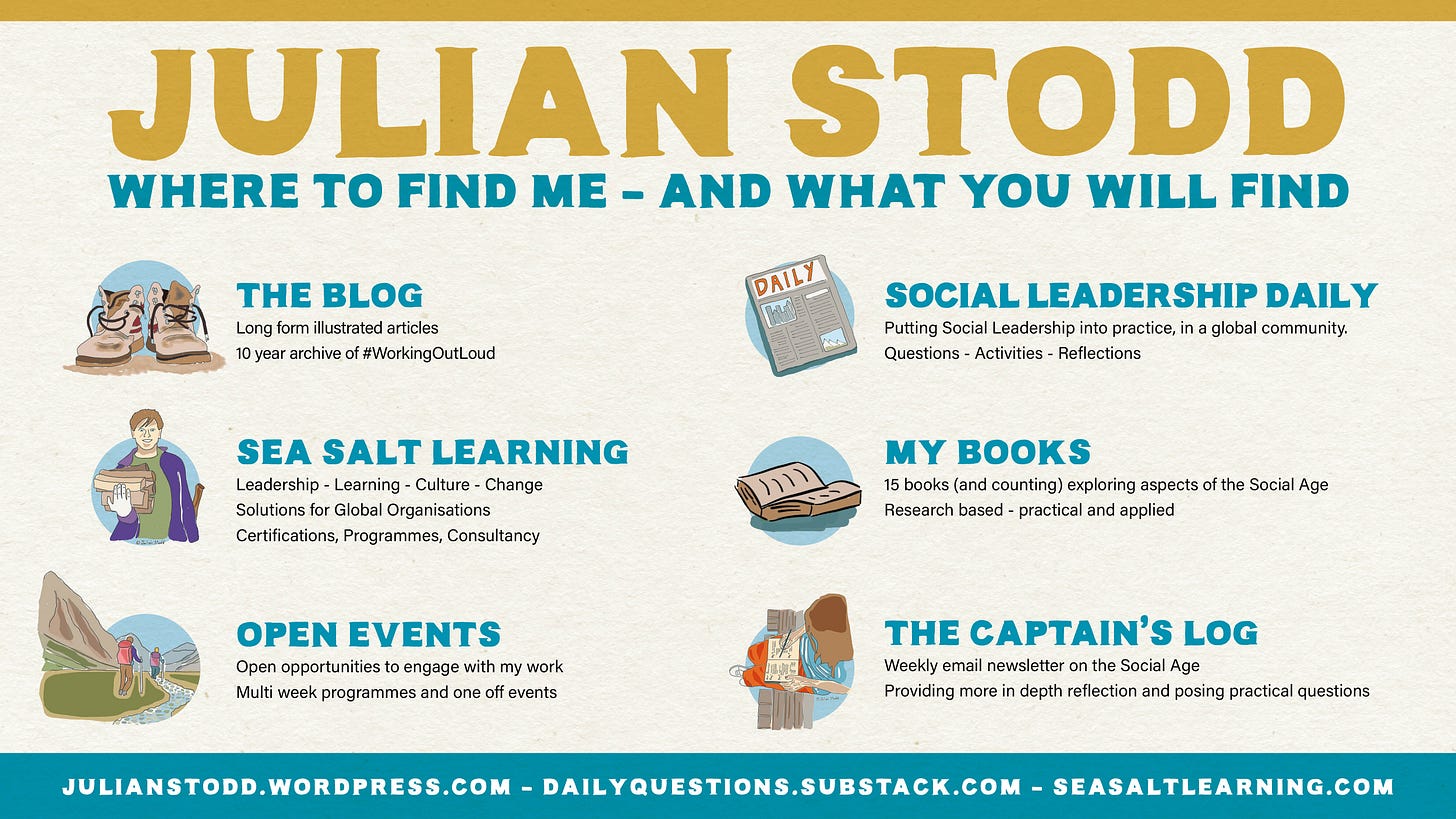When i asked people in different high performance contexts (like medical, military, and aerospace) how they are effective, they all described times when their network helped them to solve intractable problems. No surprise there: we lead in the arms of our communities, which bring us knowledge, diverse experience, and a space to make sense and figure things out.
But there were other commonalities: these people tended to prefer social (rather than formally established) networks, and they tended to ‘allow’ people into the conversations at a second degree of trust. In other words: if i trust you, i may ask for your help to solve a problem - and if you ‘sponsor’ in someone i don’t know, but that you vouch for, i will ‘trust’ them too.
So in a quite practical sense, we find great value in the sharing of networks - but also some caution too.
I often get people (some of whom i only have a casual acquaintance with) asking me for introductions or access to my network - especially when they want to sell them something. Invariably i refuse, because (as that research showed) if you introduce people into networks and they turn out to be bad actors, then your reputation suffers too.
Use your sixty seconds today to consider how someone has shared access to a network with you - and what it meant to you.
Undoubtedly one of the ways you can strongly support people as they make their journey is to make introductions and curate new connections - but it’s an activity that may carry a cost.



